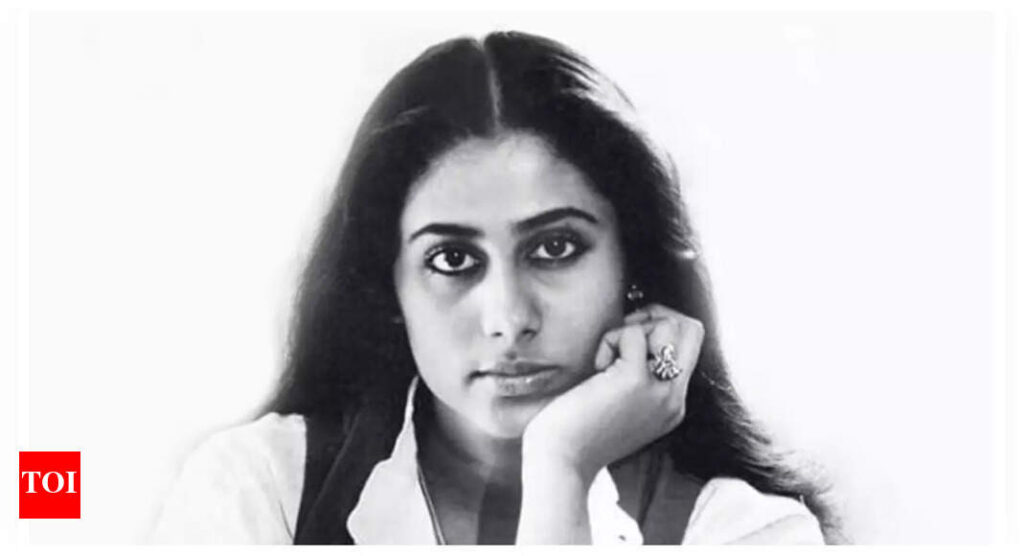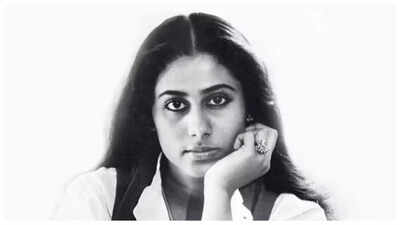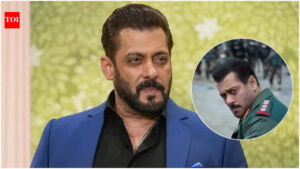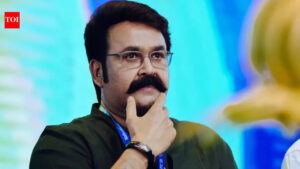‘That will be my end’: Smita Patil on uncomfortable rain dance with Amitabh Bachchan, hurt from Yash Chopra’s rejection | Hindi Movie News

Smita Patil faced challenges balancing meaningful roles with mainstream films. From uncomfortable scenes in Namak Halaal to being hurt by Yash Chopra’s rejection, she spoke openly about women’s struggles and stereotypes in commercial cinema.
Early struggles in commercial cinema
In an old interview with India Today, Smita said, “I used to think doing one commercial film would be fun, but in Hindi films you can’t stop there. I wonder if Shabana will be able to get out of the commercial whirl – I think she is too far in it now.” Just a few years into her career, Smita realized she would have to choose her path. “I know I want to act in good films. But good directors are hard to find, and they often prefer lesser-known faces. I hope I don’t get pushed into commercial films, because truly, that will be the end of Smita Patil,” she admitted.
Hurt from Yash Chopra’s rejection
In a conversation with Shah Rukh Khan, Yash Chopra had once revealed that he didn’t personally inform Patil when she was replaced on a project just a day before shooting. Instead, he sent Shashi Kapoor to deliver the news, which deeply hurt her. Later, when they met, Smita told him, “Yash ji, you did what you felt was right, but there was only one thing wrong with it. You should have communicated it yourself. I wouldn’t have felt bad if you told me, but since Shashi delivered the message, I was hurt.” Yash Chopra admitted, “You are right, but I was embarrassed. I know I did the wrong thing.”
Uncomfortable scenes in Namak Halaal
Smita also took on a few projects with Amitabh Bachchan in her career, In Namak Halaal, she played a typical ‘flower pot’ role—Amitabh’s love interest, complete with a rain dance sequence. Years later, Big B wrote in his blog that Smita was “uncomfortable during the shooting of the entire film because she just could not understand why she was asked to do what she was asked to do.”At the 2015 launch of the book Smita Patil: A Brief Incandescence, he recalled the rain dance song ‘Aaj Rapat Jaye,’ saying, “She felt it was away from her culture and thinking,” and noted that such films were “against her nature.” The experience left her embarrassed, as Bachchan remembered: “She told me she had worked in so many good films but once, at the airport, she felt awkward and embarrassed that people remembered her for Namak Halaal.”
Standing her ground on screen
Her sister Manya recalled that Smita once refused to deliver a line on screen. “There was a scene where she had to tell Amitabh Bachchan’s Vijay, ‘Main tumhare bachche ki maa banne wali hoon.’ A visibly upset Smita came to the dressing room and said, ‘I can’t say this idiotic ghisi peeti (cliched) line!’ After much discussion, she finally agreed to say, ‘Main maa banne wali hoon.’ Usually, actors get intimidated by seasoned filmmakers and co-stars, but she didn’t,” Manya said.In an interview with Doordarshan, Smita had spoken openly about how women in mainstream films were often given the same stereotypical parts. Reflecting on her own career, she said it was her “good luck” to have played nuanced characters. “Those women were portrayed as who they truly were—like in Bhumika or Manthan, where you don’t just see a woman who is suffering, but also her inner strength,” she explained.She also addressed the problem with mainstream films in the same interview. “When I started working in commercial movies, I saw that all the women are the same. Either they are suffering, obedient, and weak, or they are vamps playing negative roles,” she said. She also pointed out that women’s bodies were often sexualized on screen purely to attract more attention.






